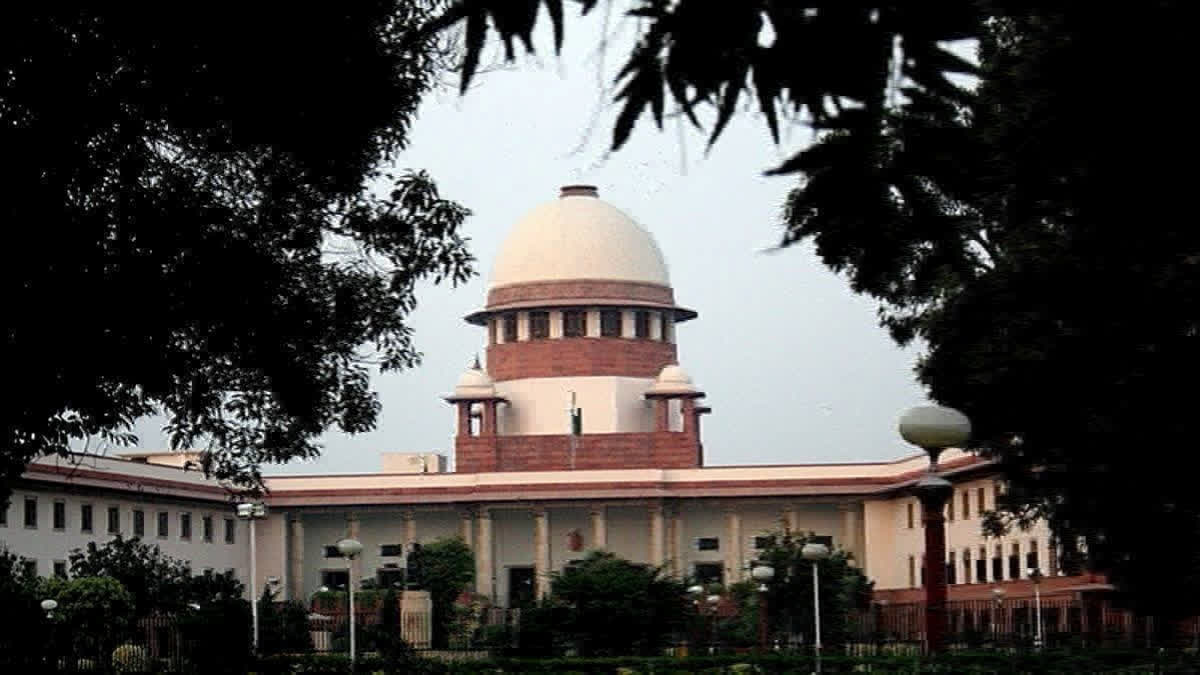New Delhi:The Supreme Court has said that the prison administration needs to be reformed for creating a better environment and prison culture to ensure the prisoners enjoy their right to dignified life under Article 21.
The top court quoted Fyodor Dostoevsky’s famous lines as saying, "The degree of civilisation in a society can be judged by entering its prisons". The top court made this observation while setting aside the Jharkhand High Court verdict, which quashed the transfer of Vikash Tiwary, a convicted gangster, from one prison to another in the state.
A bench comprising justices J B Pardiwala and R Mahadevan said: "The State recognises that a prisoner loses his right to liberty but still maintains his right to be treated as a human being and as person. His human dignity shall be maintained and all basic amenities should be made available to him".
The bench, in a judgment delivered on Friday, said discipline and order shall be maintained with firmness, but with no more restriction than is necessary for safe custody and well-ordered community life, with due regard to the maintenance of the rights of prisoners. The bench stressed that the objective of reforms and rehabilitation of the prisoners has to be pursued diligently.
The bench said the prison administration needs to be reformed for creating a better environment and prison culture to ensure the prisoners enjoy their right to dignified life under Article 21. "It is essential to continuously monitor the physical conditions prevailing in the prison, compliance with basic and fundamental rights of the prisoners, etc," it said.
The bench said prisons are considered as the 'tail end' of the criminal justice system, and they have existed since ancient times, for deterrence and retribution, and added that in modern days, a prison connotes a correctional mechanism, thereby emphasising the reform of inmates.
"Prison life necessitates certain constraints on the freedom of inmates. Therefore, it is imperative on the part of the prison authorities to rehabilitate the prisoners into law-abiding citizens, besides maintaining security and rule of law in the prison," the bench observed.
The bench said this court has repeatedly recommended an overhaul of prison administration by suggesting reforms in the treatment of prisoners and management of prisons. "The dehumanised existence of prisoners was reprimanded by Justice Krishna Iyer in Sunil Batra v. Delhi Administration (1980), and he called for an overhaul of Prison Manuals in compliance with constitutional ideals and human rights," said the bench.
The Model Prison Manual came into existence in 2003 and it was approved by the Ministry of Home Affairs, only in 2016. "The Model Prison Manual and the system that it envisages, has to be understood as an outcome of the repeated clarion calls and demands to safeguard prisoners' rights and prison reforms," noted the bench.
In the present case, the apex court restored the inspector general of prisons order to transfer Tiwary to another jail, citing the necessity of ensuring prison safety and preventing potential gang violence. Tiwary’s counsel had argued that there was no material on record to demonstrate that he was involved in any untoward incident inside the prison, and the apprehension of gang war was unfounded.
Tiwary, a life-term convict, was transferred from Lok Nayak Jai Prakash Narayan Central Jail in Hazaribagh to Central Jail in Dumka. Tiwary challenged this order in the High Court, which quashed the order on August 21, 2023, saying it was unjustified. The Jharkhand government moved the apex court against the High Court order.
The apex court said the state of Jharkhand shall, if not already done, formulate or expedite the formulation of a jail manual incorporating the applicable provisions of the 2016 Model Prison Manual, for effective prison administration and ensure its strict compliance by the prison authorities.
The apex court said, regarding Jharkhand, there was no clear-cut picture regarding prison administration and the facilities available to the prisoners’ in the prisons.
The top court said, "The transfer was essential not only for the safety of the prisoner but also to neutralise the potential for gang-related violence within the prison". The bench observed that the inspector general’s duty was to act in the larger interest of prison security while setting aside the High Court order.
